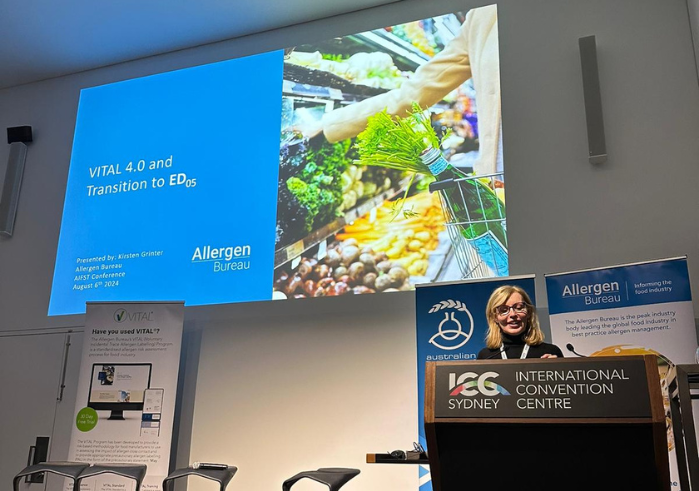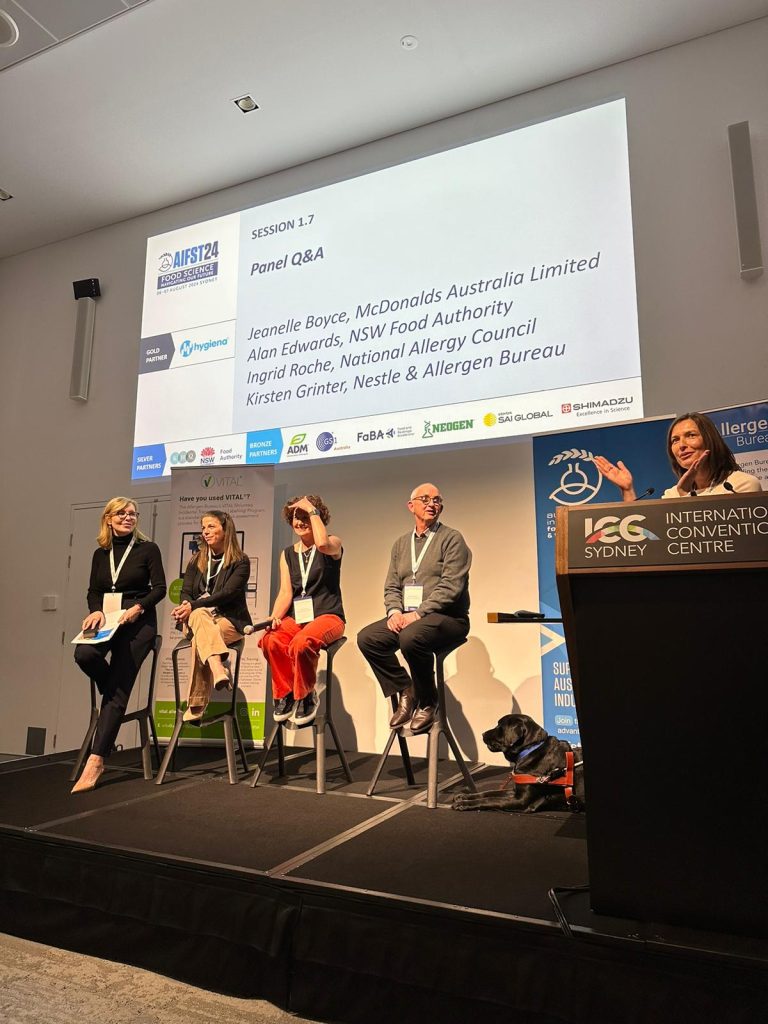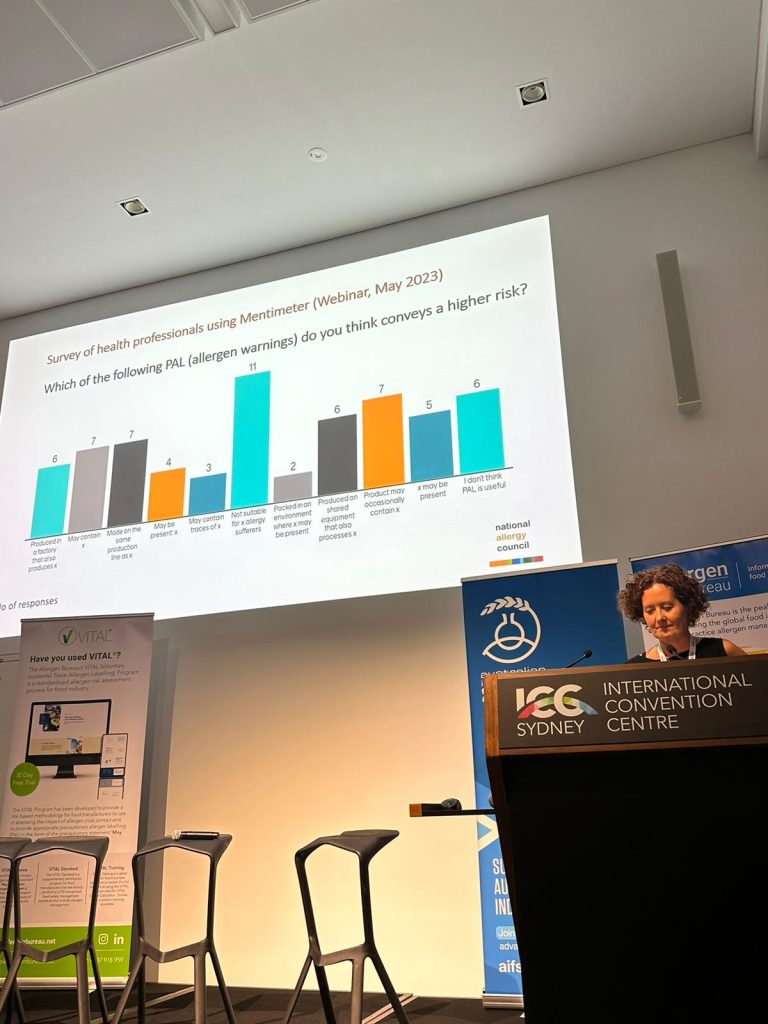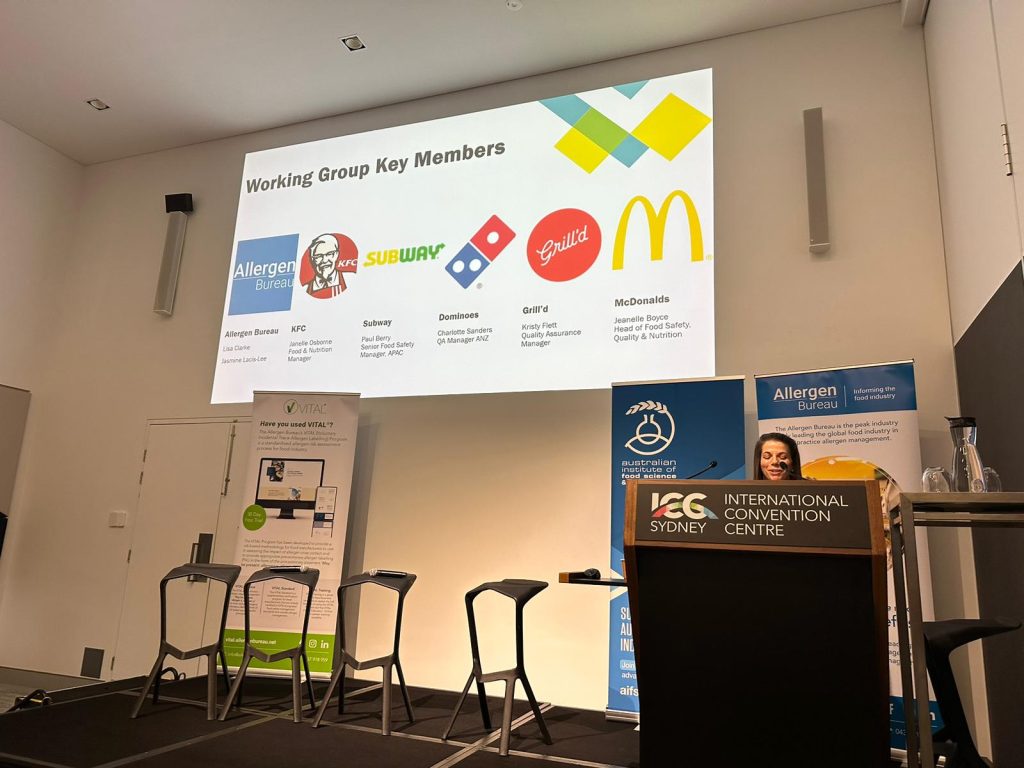
The AIFST 2024 Convention kicked off in Sydney last month with Allergen Bureau’s dynamic session on allergen risk, control, and management, highlighting the critical role of cross-sector collaboration in areas such as industry, food service, government, consumer health, and clinical fields.
Chaired by Allergen Bureau president Jasmine Lacis-Lee, the session covered essential topics, including allergen risk communication in Quick Service Restaurants (QSR), updates on the Australian Consensus Statement on Food Allergen Management, and the transition to ED05 based Reference Doses in VITAL® 4.0. The event wrapped up with an engaging Q&A session, where participants delved into the complexities of the new standards.
Key Highlights:
- Jeanelle Boyce (McDonald’s Australia) emphasised the need for a best practice guide in the QSR sector and discussed the current working groups progress on key issues such as allergen management in the QSR setting, order accuracy, training of crew and managers, and key considerations in communicating allergen risks to consumers.
- Alan Edwards (NSW Food Authority) highlighted the critical importance of communication in allergen risk management, stressing that risks are not constant and that all stakeholders including industry, regulatory and consumers must share responsibility for effective mitigation and communication.
- Ingrid Roche (National Allergy Council) discussed the rising rates of anaphylaxis, now affecting nearly 3% of the population, and underscored the importance of education of health professionals in understanding and communicating the meaning of a PAL, as well as the impending release of an updated broader reaching consensus statement in late 2024.
- Kristen Grinter (Nestlé and Allergen Bureau Director) provided insights into VITAL 4.0’s transition from ED01 to ED05, explaining its impact on the food industry and consumers. Grinter noted that around 19% of products currently labelled with a PAL may no longer require one, and how VITAL 4.0 continues to ensure meaningful PAL statements and stringent safety standards.
The AIFST24 Convention showcased the power of industry collaboration and communication, illustrating how different sectors can come together to tackle complex issues and develop solutions that benefit both consumers and the food industry. The positive feedback and interactive discussions underscored the ongoing need for collaboration to ensure the safety and well-being of those with food allergies.
Thank you to everyone who attended and contributed to the success of the event! Presentations are available for attendees via AIFST directly





